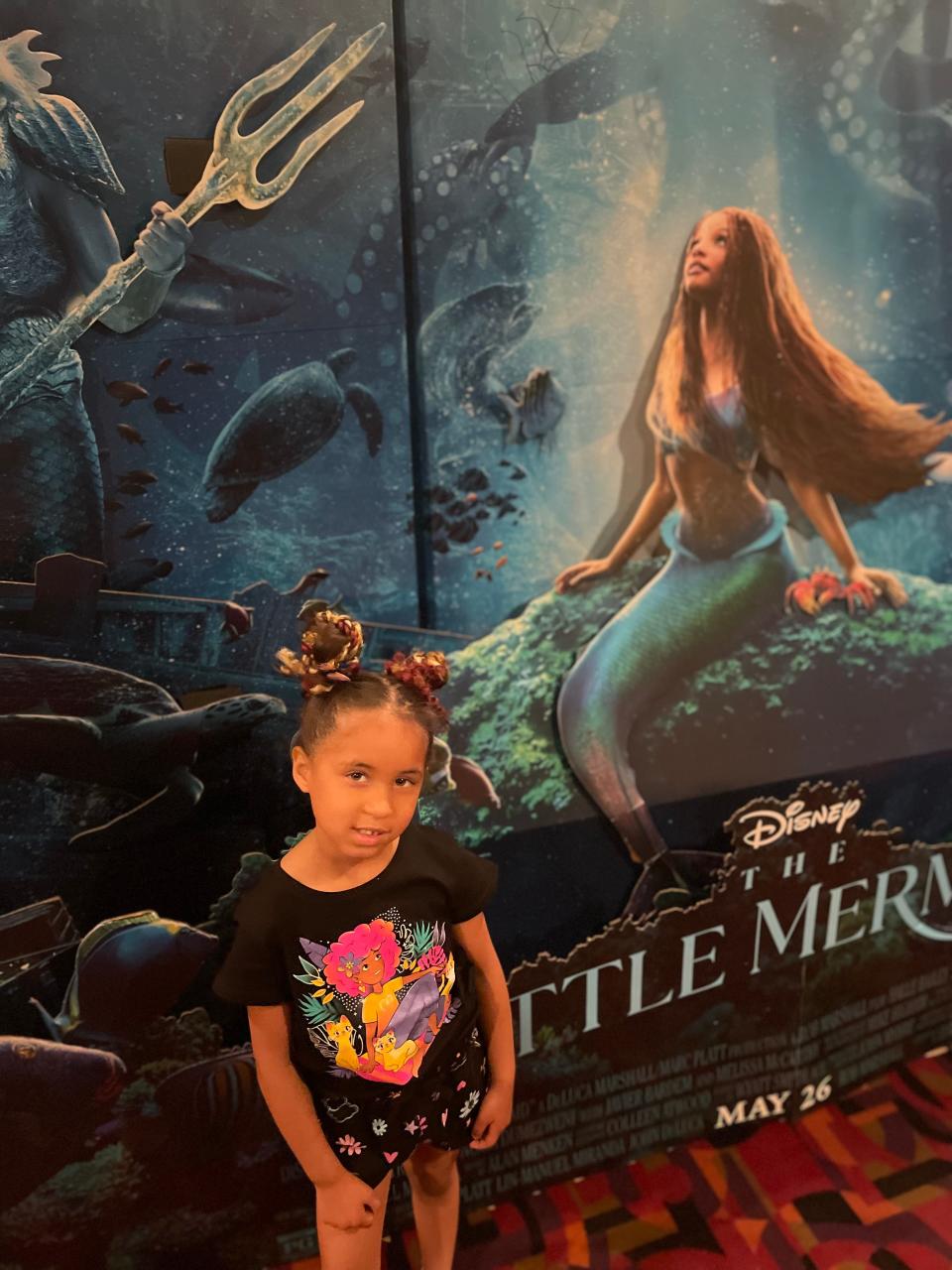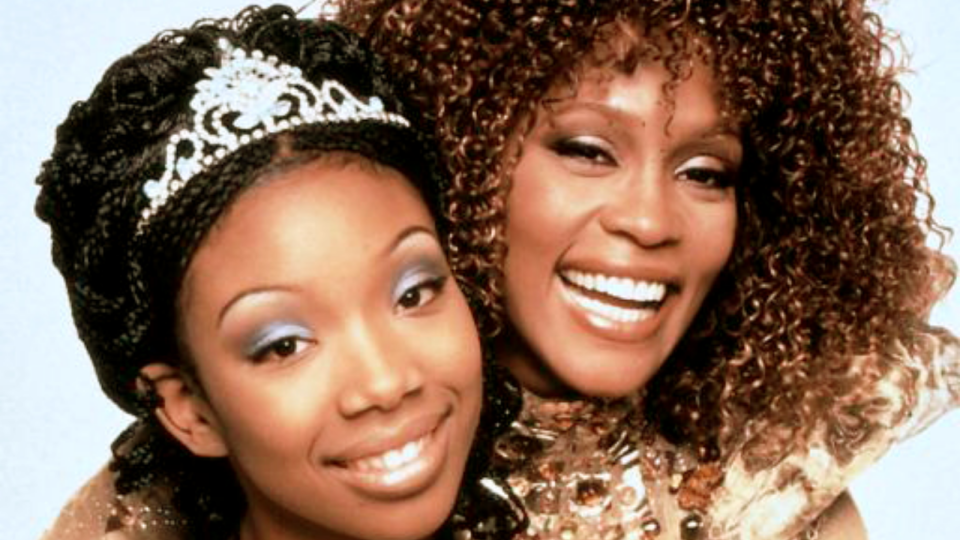Notre Dame film expert, South Bend residents weigh in on 'The Little Mermaid' controversy
- Oops!Something went wrong.Please try again later.
For many Disney lovers across the country and the South Bend region, seeing Black actress Halle Bailey's portrayal of Ariel in the new, live-action remake of "The Little Mermaid" is nothing short of magical.
"She's brown like me," a little girl named Maya said to her mother in a video posted to the TikTok page @nickyknackpaddywack. "I'm so excited to see this movie."
@nickyknackpaddywack Mayas reaction to #thelittlemermaid trailer. #representationmatters #representationinthemediamatters #blackgirls ♬ original sound - Nicky
A USA Today story from Sept. 12 shared Maya's reaction to the teaser trailer, which was released Sept. 9 for Rob Marshall's live-action adaptation of the Disney classic. In the same story, USA Today shared positive reactions to the upcoming film from other young Black girls.
"Everybody deserves to see themselves reflected in the media," said Mary Kearney, associate professor of film, television and theater at the University of Notre Dame. Kearney's research primarily focuses on gender, youth and media culture, especially girls' media.
While growing up in the 1970s, South Bend native Jackie Rucker knew of one television show with a majority-Black cast, CBS sitcom "Good Times." She and her friends watched it frequently, she said.
"Sometimes it wasn't even good, but we'd just watch … because, just to be able to see someone who looks like us, it makes a difference," said Rucker, director of diversity, equity and inclusion at Teachers Credit Union.
Years later, Rucker's now 32-year-old daughter, a child at the time, adored Disney's original 1989 animated "The Little Mermaid" and other Disney princess films. Rucker remembers observing that Disney's characters were overwhelmingly white.
In 2009, Disney released "The Princess and the Frog," which introduced the world to Tiana, the company's first Black princess. Although her daughter was an adult by then, Rucker said this was an exciting and important moment for representation in the media.

"It's easier to see yourself accomplishing things if you see others who look like you accomplishing those things," she said. "If you go through life, and you never see anyone who looks like you ― whether it's mythical things like a fairytale or even things on television ― it becomes a struggle. It's not good for your psyche as you're growing up. It's very isolating."
Rucker said she looks forward to taking her 4-year-old granddaughter Marcella to see the new "The Little Mermaid" when it's released in May 2023.

"My granddaughter is biracial, and this gives her a chance to see people who look like her in fairytales. She loves 'Frozen,' but she looks a little goofy wearing a blonde, Elsa-costume ponytail pinned to her head …," Rucker said. "I'm hoping she's going to ask me to buy her a little wig with red dreadlocks so she can pretend to be Ariel."
The film has attracted much controversy for casting Bailey as Ariel
However, not everyone is excited about Disney's latest live-action remake.
Since it was announced in July 2019 that Bailey would play Ariel, the film has been engulfed in controversy. Some fans are displeased that a Black actress is playing Ariel, who is white with red hair in Disney's original animated "The Little Mermaid."
According to Newsweek, within two days of it being released, the film's trailer had racked up 1.5 million dislikes on YouTube.
"There are just apparently tens of thousands, if not more, racist white people in the United States who are really upset that their beloved Ariel is being performed by a young, Black woman," Kearney said. "Hashtags have been developed, (along with) memes and videos and other heinous forms of communication."
In one widely-viewed video, an artificial intelligence artist known as @TenGazillionIQ on Twitter created a deepfake face-swap of "The Little Mermaid" trailer, altering the footage to artificially "replace" Bailey with a white, red-headed woman.
Kearney said critics' complaints that Ariel should not be portrayed by a Black actress because she was white in the original film are not effective arguments against Bailey assuming the role.
"Well, number one, she's playing a mermaid. As far as I know, mermaids don't come in races," Kearney said. "Race is a human construction that's applied to human beings … It's a completely illogical argument when we're talking about fantastical creatures that don't exist."
Similarly, Rucker said, while she would understand if people were upset about a non-fictional character being portrayed as a different race, she doesn't understand the outrage over a fictional princess.
"Now if this were a real person, I could see pushback … But when you've got fictitious characters, they can be played by anybody," she said. "And I think that gives us depth, it shows the creativity of Disney, and it shows how open they are."
Kearney said the worlds of film and television have a long history of casting white actors to portray people of color. She hypothesizes that many white critics of "The Little Mermaid" are uncomfortable seeing this phenomenon reversed because, for many of them, this is their first time experiencing that.
"What's happening for a lot of white (people) in moments like this is that they're being forced to go through the kind of mental gymnastics that oppressed groups have long had to do, which is to map themselves on to characters that don't look like them, and it's uncomfortable," she said. "But it's been uncomfortable for (oppressed groups) for a long time."
Some say their criticism of the film has nothing to do with racism
South Bend mother Victoria Suchovsky said she is "obsessed" with Ariel and "The Little Mermaid." Her engagement ring is even an Ariel-inspired ring from Disney's jewelry collection.
"When I was a kid, I was a foster kid … who loved Ariel," Suchovsky recalled. "It was just kind of a thing to get away from it all."
Growing up, she said, she would watch the original "The Little Mermaid" film "like 10 times a day." When she first saw the new "The Little Mermaid" trailer, she said, it was obvious why Bailey was chosen for the lead role.
"She's a beautiful girl with an amazing voice," Suchovsky said.
She added, the similarity between Bailey's voice and Ariel's voice in the original film gave her chills, and she looks forward to taking her mermaid-loving young daughter to see the new film.
However, Suchovsky admitted she is "slightly disappointed" that Bailey's Ariel does not look like the white, red-headed Ariel that Suchovsky is used to.
"I know that's the wrong opinion to have right now, but for me, I have purely nostalgic reasons for feeling that way," Suchovsky said.
People have known Ariel as white "for decades," she continued.
"I think we're wired to think things were better when we were younger, so when they make a remake, people with an attachment to (the original) are displeased with the people who created it and changed the main image of something that they've had in their minds for decades," Suchovsky said. "It's unfair to say you can't feel that way unless you're racist."
While reading through Facebook comments about the new "The Little Mermaid" film, Suchovsky said, she learned that Africa "actually has a lot of mermaid folklore." She said she thinks it would be "really awesome" if, instead of remaking Ariel's story, Disney made a film featuring a Black mermaid based on African folklore.
"She could have had her own name … and a story that wasn't told that's also rooted in African culture," Suchovsky said. "I would support a movie like that. I actually really wish they would do that."
Kearney said she disagrees with nostalgic arguments like Suchovsky's.
"They haven't obliterated the original Ariel," Kearney said. "If people want their beloved white, red-headed Ariel, they still have her and have her in abundance when compared to previous generations of folks who didn't have as much access to watching Disney movies. … Their movie is still out there for them."
This is not the first time a film has gotten a more diverse remake
Throughout the late 20th and 21st centuries, multiple popular films have been reimagined and remade using a more diverse cast.
In 1978, Sidney Lumet's film "The Wiz" reimagined the classic tale of "The Wizard of Oz" with a star-studded, all-Black cast that included Diana Ross and Michael Jackson.
"I was a kid at the time 'The Wiz' came out. I remember thinking it was pretty cool, and, of course, the Black community was hugely jazzed by it, because it was a really big deal …," Kearney said. "Black American stars were featured in that film, and that was hugely important in the Black community, especially because it did kind of cross over into the white audience. There have been plenty of Black films that white people won't see. They don't get distributed in white communities, and they don't have very much money behind them, but this was a major crossover."

Then, in 1997, another Disney classic was remade with a Black lead princess. The film, "Rodgers & Hammerstein's Cinderella," starred Brandy Norwood as Cinderella and Whitney Houston as the Fairy Godmother and became a cult classic.
Kearney said that although she imagines there were people upset about the diverse casting choices in "The Wiz" and "Rodgers & Hammerstein's Cinderella" when the films were released, the outrage was never to the scale it has been with "The Little Mermaid."
If similar numbers of people were outraged, most of society "wouldn't have known, because the average, everyday American had very little access to promoting their views publicly," Kearney said. "Social media has changed all of that."
She said she also believes the current political climate has encouraged critics of "The Little Mermaid" remake to voice their opinions.
"In the cultural moment we're in, that kind of discourse is now seen as perfectly permissible within our larger social and cultural forum …," she said. "Clearly, there are a lot of people who have a lot of time on their hands to be involved in something like this."
Rucker, too, is disturbed by the onslaught of criticism the film has received, but she is trying to maintain a positive perspective.
"I'm not sure why (the film) upsets them, but if you live in an environment where your belief system is that certain people are in a box, and somebody changes that box, it seems like you perceive it as a threat," she said. "I don't think it's a threat. I think it broadens and makes things a little more realistic, a little more holistic. And I think it's great for children."
Email Tribune staff writer Claire Reid at cereid@gannett.com.
This article originally appeared on South Bend Tribune: Notre Dame professor responds to 'Little Mermaid' remake controversy

